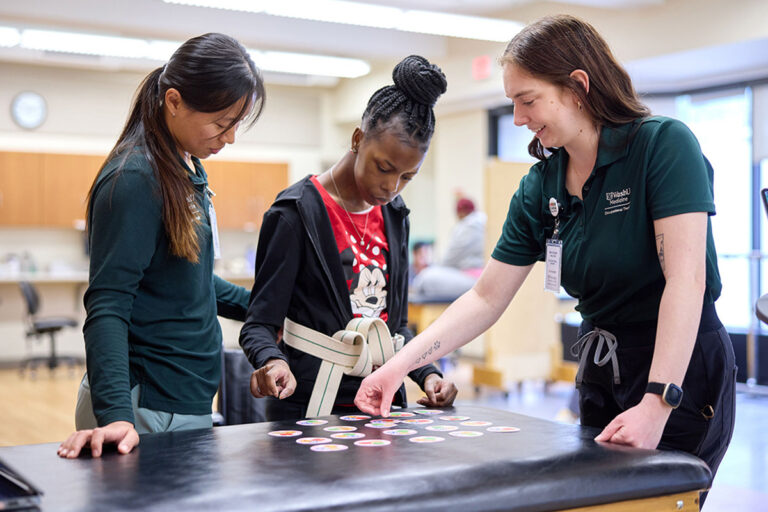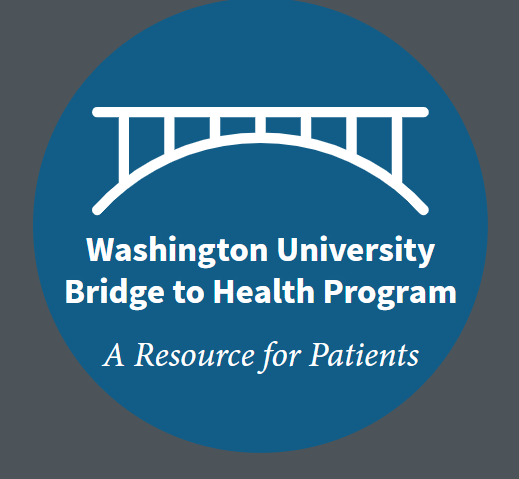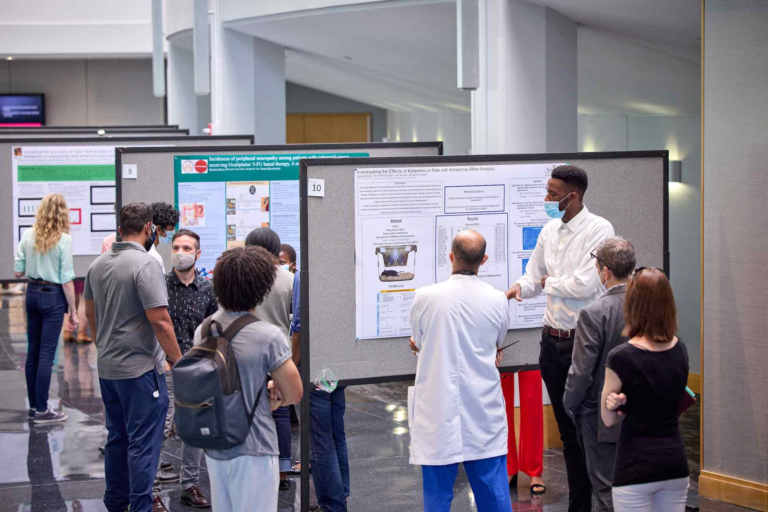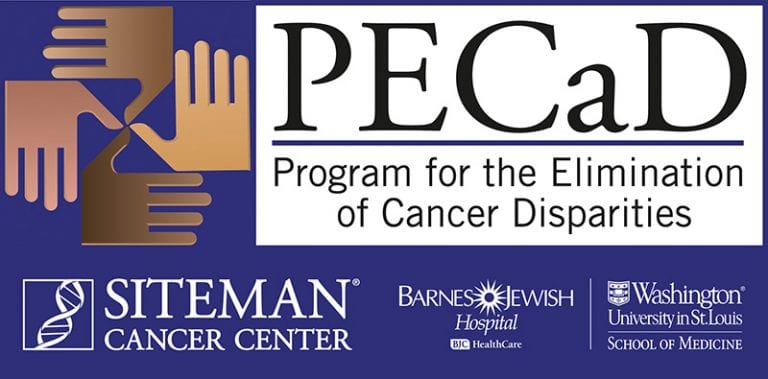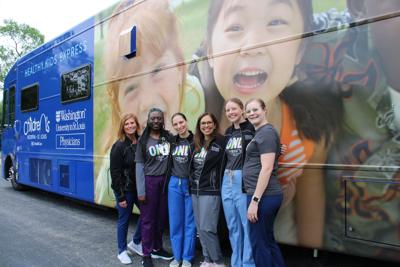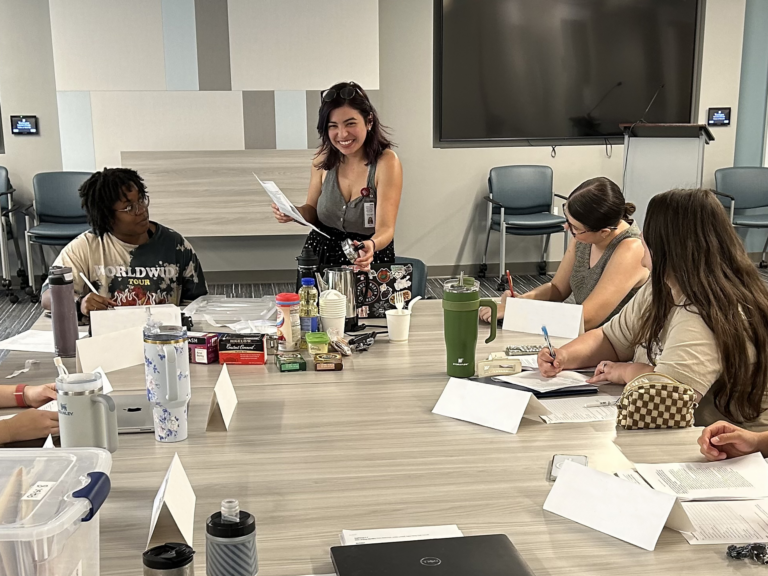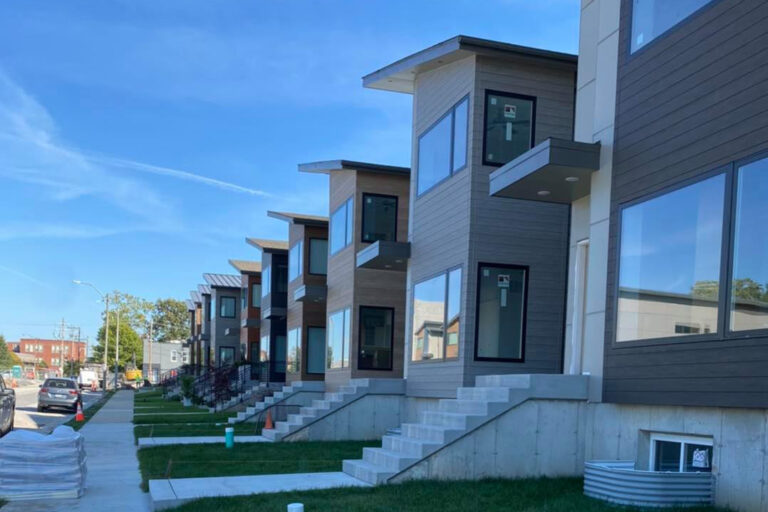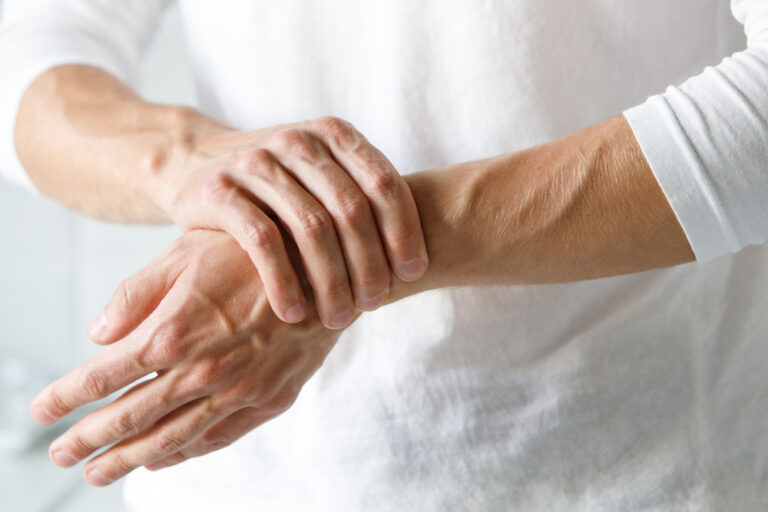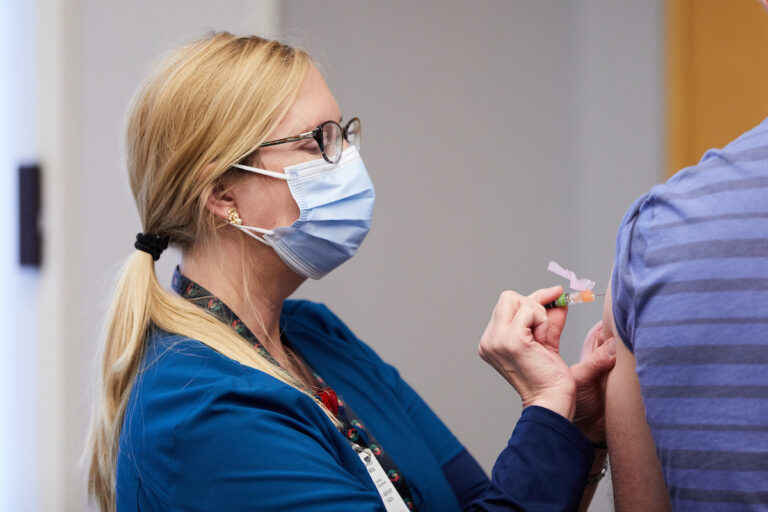Together, WashU Medicine MD, OT, PT students treat patients at Pro Bono Health Clinic
Student-led, patient-first. At the WashU Medicine Pro Bono Health Clinic, medical, occupational therapy and physical therapy students team up to provide much-needed care to uninsured community members in the St. Louis area.
Washington University Bridge to Health Program
The Washington University Bridge to Health Program provides additional services to patients who inject drugs and are admitted to the hospital with invasive infections. Patients in the program have free access to health coaches, mental health services, clinical case management, transportation and medication assistance (if eligible) and connection to care after treatment of the infection is completed. The program has a team of people and additional resources to help individuals for several weeks.
Anesthesiology Summer Research (ASSURE) Fellowship
The ASSURE fellowship at WashU Medicine provides college students from the St. Louis metro area an opportunity to engage in basic, clinical, and/or translational research projects. Candidates without prior research experience are particularly encouraged to apply.
Program for the Elimination of Cancer Disparities (PECaD)
The mission of PECaD is to ensure that all cancer patients and communities benefit from the clinical and scientific advances at Siteman Cancer Center. The program strives to reduce the cancer burden and related disparities, while engaging communities to promote health equity across Siteman’s catchment and beyond.
Healthy Kids Express – Diabetes Program
The Healthy Kids Express– Diabetes Program brings a team of diabetes experts including those from Children’s Hospital and Washington University Physicians to underserved area schools.
Science Media Fellowship
The Science Media Fellowship program at WashU Medicine’s McDonnell Genome Institute supports local high school students interested in science, journalism, public policy, and more. Additionally, the program shares with students how stories told about science influence public perception and public policy.
Community Experiential Learning Center
Each semester, the Washington University Student Occupational Therapy Association has been able to improve the lives of many individuals in the St. Louis community. These projects include exploring areas of occupational therapy practice and volunteering within the community. Projects range from Accessibility of Schools in St. Louis, assessment of two school environments in St. Louis, to the Parkinson Disease Caregiver Education Series, a project where faculty and students develop curriculum of two classes to support the knowledge, skills, and emotional health of Parkinson patients’ caregivers.
Washington University Medical Center Redevelopment Corporation
The Redevelopment Center at WashU Medicine has helped provide human and social services, diverse housing options, and residential life and safety to surrounding neighborhoods. This is done through initiatives and outreach programs that caters to those communities.
Eastern Missouri Regional Arthritis Center
The Missouri Arthritis and Osteoporosis Program (MAOP) works to improve the health and quality of life of adults with arthritis through uplifting and supporting evidence-based lifestyle management. WashU serves as one of seven Regional Arthritis Centers in Missouri and the only one in the St. Louis area.
Center for Community Health Partnership and Research (CCHPR)
The Center for Community Health Partnership & Research (CCHPR) reduces disparities and improves health and wellness in the region as it fosters meaningful engagement between communities and researchers.
